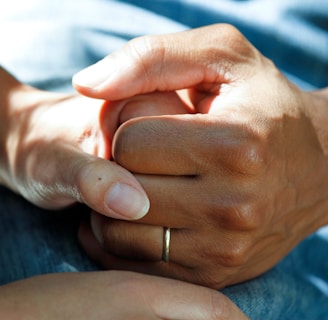Fasting and Fighting Fit: Can Fasting During Ramadan Help You Through Cancer Treatment?
Fasting During Ramadan While Fighting Cancer: Friend or Foe? Facing cancer and Ramadan? Don't fret! This article explores the surprising benefits of fasting for some cancer patients, like boosting immunity and enhancing treatment. But it's not a one-size-fits-all situation. Get the lowdown on who should avoid fasting and how to fuel your body safely if you do choose to fast. Plus, learn how to leverage Ramadan for inner strength and a better quality of life. Doc's advice is key, so read on and feel empowered to make informed decisions for your health journey!
HEALTH


Hey there, everyone!
Let's talk about something that hits close to home for many of us in Malaysia – Ramadan and its impact on health.
This time around, we're focusing on a specific situation: fasting while battling cancer.
It's a big question mark for many warriors out there, so buckle up as we explore the science behind fasting and its potential benefits (and drawbacks) for cancer patients.
We've all heard stories about friends or family members who put their Ramadan fast on hold during cancer treatment.
But what if there was another way?
Recent research suggests that fasting during Ramadan might actually have some perks for those fighting the big C.
Let's dive deeper!
Fasting's Fight Club: How Can It Help?
Imagine your body as a battlefield.
Cancer cells are the enemy, and your immune system is the valiant hero.
Research suggests that fasting throws a wrench into the cancer cell's game plan.
Here's how:
Starving the Enemy: Cancer cells thrive on sugar (glucose) for fuel. By restricting food intake during fasting, we might be making it harder for them to grow and spread. It's like cutting off their energy supply!
Stem Cell Super Soldiers: Fasting seems to give a boost to our body's stem cells, the building blocks of our immune system. Stronger stem cells translate to a more robust defense against cancer.
Treatment Team-Up: Studies show that fasting might even enhance the effectiveness of some cancer treatments, making them work a little bit better.
Not Everyone's a Fasting Fighter:
Hold on, this doesn't mean everyone undergoing cancer treatment should jump straight into fasting.
It's crucial to remember that everyone's situation is unique.
Here's when fasting might not be the best idea:
Feeling Rough? If you're experiencing nasty side effects from treatment, like nausea or fatigue, fasting could worsen things. Prioritize getting the nutrients your body needs to feel its best.
The Cancer Spreads: When cancer has spread (metastasized) to other parts of the body, the focus should be on getting enough nutrition to support your entire system.
Doctor's Orders: This is the golden rule! Always discuss fasting with your doctor before making any changes to your routine. They'll assess your specific condition and advise you accordingly.
Fasting for Your Wellbeing:
For some cancer patients who are in a stable condition and have their doctor's green light, fasting during Ramadan can be a way to improve not just their physical health, but also their mental and spiritual well-being.
Here's how:
Inner Strength: Fasting is a deeply personal experience that can connect you with your faith and provide a sense of inner peace during a challenging time.
Quality of Life: Feeling in control of your health choices, like fasting, can significantly improve your overall quality of life.
Fueling Your Fight:
If you and your doctor decide that fasting is a viable option, remember – planning is key!
Here are some tips to ensure you get the nutrients your body needs during Ramadan:
Pre-Dawn Power Up: Make your pre-dawn (sahur) meal count! Opt for protein-rich foods and complex carbs that release energy slowly throughout the day. Think lean meats, eggs, whole grains, and nuts.
Hydration Hero: Stay hydrated throughout the non-fasting hours. Carry a water bottle with you and sip regularly. Consider adding fruits and vegetables to your water for extra flavor and electrolytes.
Post-Fast Feast: Break your fast (iftar) with dates or fruits, followed by a balanced meal rich in protein, healthy fats, and whole grains. Don't overindulge, as this can cause digestive issues.
Seek Expert Advice: A consultation with a registered dietician can help create a personalized meal plan to ensure you're getting all the essential nutrients during Ramadan.
Remember:
This article is for informational purposes only and doesn't substitute for professional medical advice.
Always consult with your doctor before making any changes to your treatment plan or fasting routine.
Let's Talk!
Have any questions or experiences with fasting and cancer treatment?
Share them in the comments below!
We're all in this fight together, and by sharing our knowledge, we can empower each other to stay strong and healthy.
Fasting During Ramadan While Fighting Cancer: Friend or Foe?
Facing cancer and Ramadan? Don't fret! This article explores the surprising benefits of fasting for some cancer patients, like boosting immunity and enhancing treatment. But it's not a one-size-fits-all situation. Get the lowdown on who should avoid fasting and how to fuel your body safely if you do choose to fast. Plus, learn how to leverage Ramadan for inner strength and a better quality of life. Doc's advice is key, so read on and feel empowered to make informed decisions for your health journey!


